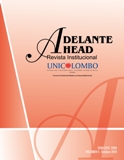A moodle course to help university students develop academic writing skills
Abstract
Fifth semester students enrolled in the Bachelor in Education with an Emphasis in English at a private university in Cartagena, Colombia, take content-based courses, among which is Second Language Acquisition II (SLA II). As part of the course, students are required to read academic papers for class debates as well as writing academic reflection papers. However, the experience of one of the teacher-researchers who participated in this study reveals that at the beginning of these courses, most of the students seem to lack the necessary academic reading and writing skills to complete the assignments properly. In response to this situation, we proposed a dual pedagogical
intervention that included a 15-hour pre-semester course in academic writing and a subsequent academic writing course in Moodle (a free e-learning platform).This paper describes the effect of the latter on the academic writing skills of 16 students in a SLA II class. Findings suggest that using a Moodle course might not be the most appropriate strategy to help students develop their academic writing skills in the context implemented. The evidence gathered through a survey lends support to the claim that students in our community are still not prepared to take advantages of online courses as much as they do of classroom-based instruction.
Keywords:
e-learning, university students, academic writing, writing skills
References
Aldana, A. (2005). The process of writing: A text by using cooperative learning. Profile, issues in teachers professional development, 6, 47-57.
Ariza, A. (2005). The Process-writing approach: An alternative to guide the students' compositions.
Profile, issues in teachers professional development, 6, 37-46.
Benson, P. (2011). Teaching and researching autonomy. Harlow, England: Longman.
Biber, D., Conrad, S., Reppen, R., Byrd, P. & Helt, M. (2002). Speaking and writing in the university: A multidimensional comparison. TESOL Quarterly, 36, 9–48.
Boyatzis, R. E. (1998). Transforming qualitative information: Thematic analysis and code development. London, England: Sage Publications.
Council of Europe (2001). Common European framework of reference for languages: Learning, teaching, assessment. Cambridge, England: Press Syndicate of the University of Cambridge.
Griffee, D. T. (2012). An introduction to second language research methods: Design and data. Berkeley, CA: TESL-EJ Publications.
Lehman, R. & Conceiçao, S. (2010). Creating a sense of presence in online teaching. San Francisco, CA: Jossey-Bass.
Nunan, D. (1999). Second language teaching and learning. Boston, MA: Heinle & Heinle.
Patton, M. Q. (1990). Qualitative evaluation and research methods. Newbury Park, CA: Sage.
Smith, R. (2008). Conquering the content: A step-by-step guide to online course design. San Francisco, CA: Jossey-Bass.
Viáfara, J. (2007). Student teachers' learning: The role of reflection in their development of pedagogical knowledge. Cuadernos de Lingüística, 9, 225-242.




